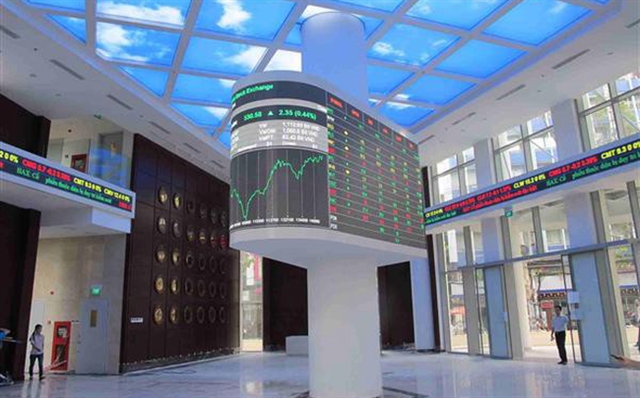Experts believe that once the KRX trading system begins official operations, many international organisations will re-evaluate the Vietnamese market to upgrade it to an emerging market.

Experts believe that once the KRX trading system begins official operations, many international organisations will re-evaluate the Vietnamese market to upgrade it to an emerging market.
Speaking at the Financial Street Talkshow last week, Duong Ngoc Tuan, Deputy General Director of the Viet Nam Securities Depository (VSD), said that solutions for the new information technology system, T+0 day trading mechanism and other solutions to help upgrade the market will be implemented this year. In addition, new products, especially products for the domestic derivatives market, are allowed to develop.
Tuan also revealed the plan to submit to the Government the market development strategy project for 2021-2030, which sets out roadmaps for development in all aspects, helping market activities become more active and sustainable.
The KRX trading system, provided by South Korea’s bourse operator, the Korea Exchange (KRX), can handle 3-5 million orders per day, aiming to tackle system overloads which had troubled investors last year. It is expected to be completed and run in the first half of 2022 after a pause last year due to the COVID-19 pandemic.
Le Chi Phuc, General Director of SGI Investment Fund Management JSC (SGI Capital), said that it is necessary to introduce the new KRX trading system soon, so all participants in the market can proactively make their own plans in product development, as well as attracting new customers.
“When the KRX system is officially put into operation, many international organisations will re-evaluate the Vietnamese market to upgrade it to an emerging market,” Phuc said.
Similarly, in its base scenario, VNDirect Securities Corporation said that if Viet Nam completes the implementation of the new trading system in the first half of 2022, the country’s market could be included on the MSCI (Morgan Stanley Capital International)’s watch list for upgrading to an emerging market in its annual market assessment in May 2023. Viet Nam may then be notified of its upgrade to emerging market during the MSCI annual market review in May 2024.
Meanwhile, in the optimistic scenario, VNDirect said that the FTSE (Financial Times Stock Exchange) may announce the inclusion of the Vietnamese stock market in the secondary emerging market group during its annual market review in September 2022.
Although it has not been officially recognised as an emerging market, the domestic market has achieved many criteria such as liquidity surpassing that of many other emerging markets in 2021, ranking only second in ASEAN after Thailand. Many large funds in the world specialising in investing in emerging markets have also begun to show up in Viet Nam, the leader of SGI Capital added.
According to Phuc, if other solutions are followed such as continuing to maintain and further improve asset quality, the prestige of the Vietnamese market will increase.
On the other hand, up to now, the criteria for organisations to evaluate updating Viet Nam into the emerging market category have reduced a lot. The remaining issues are only technical and will be solved, Tuan said.
On the foreign capital flows front, both Tuan and Phuc agreed that the cash flow into the market recorded the strongest growth in more than two decades. Of which the majority was cash flow from domestic investors and lacked cash flow from foreign investors.
Although domestic investors in the past two years have played a leading role in the market, experts say that foreign capital flows cannot be ignored, because this is an essential factor for any stock market.
“Foreign capital inflows will bring great and potential financial resources,” Tuan said.
“The participation of major international investors will play a significant role in leading the investment trend, bringing a lot of experience and international practices to make the market more active and healthy.
Meanwhile, Phuc said Viet Nam needs both domestic and foreign capital flows to develop the market, as well as develop businesses.
New technologies, the experience of foreign investors and international standards they bring into the market will help the country connect with the world in a more comprehensive way. — VNS





